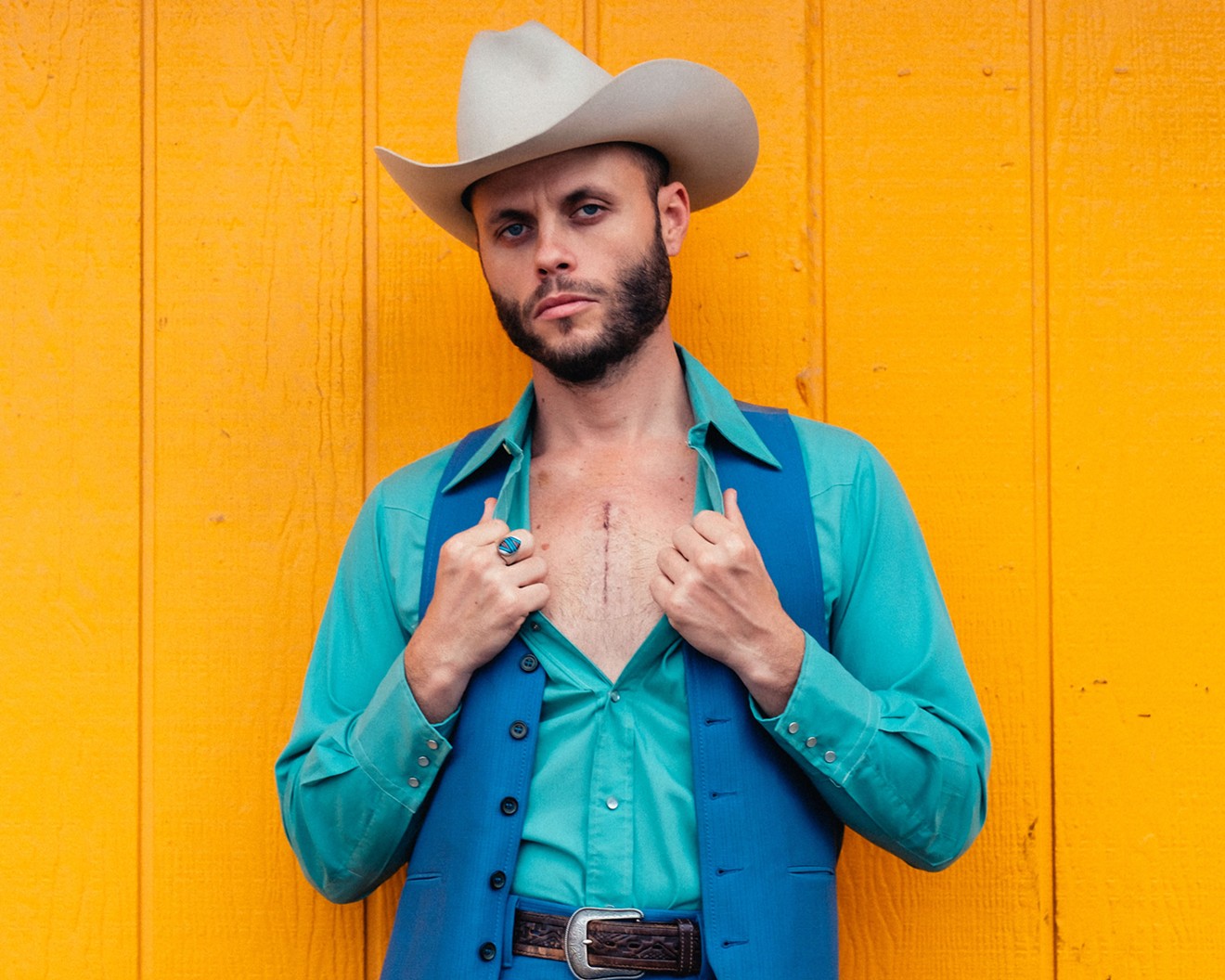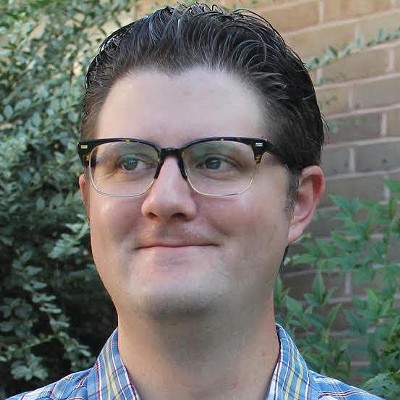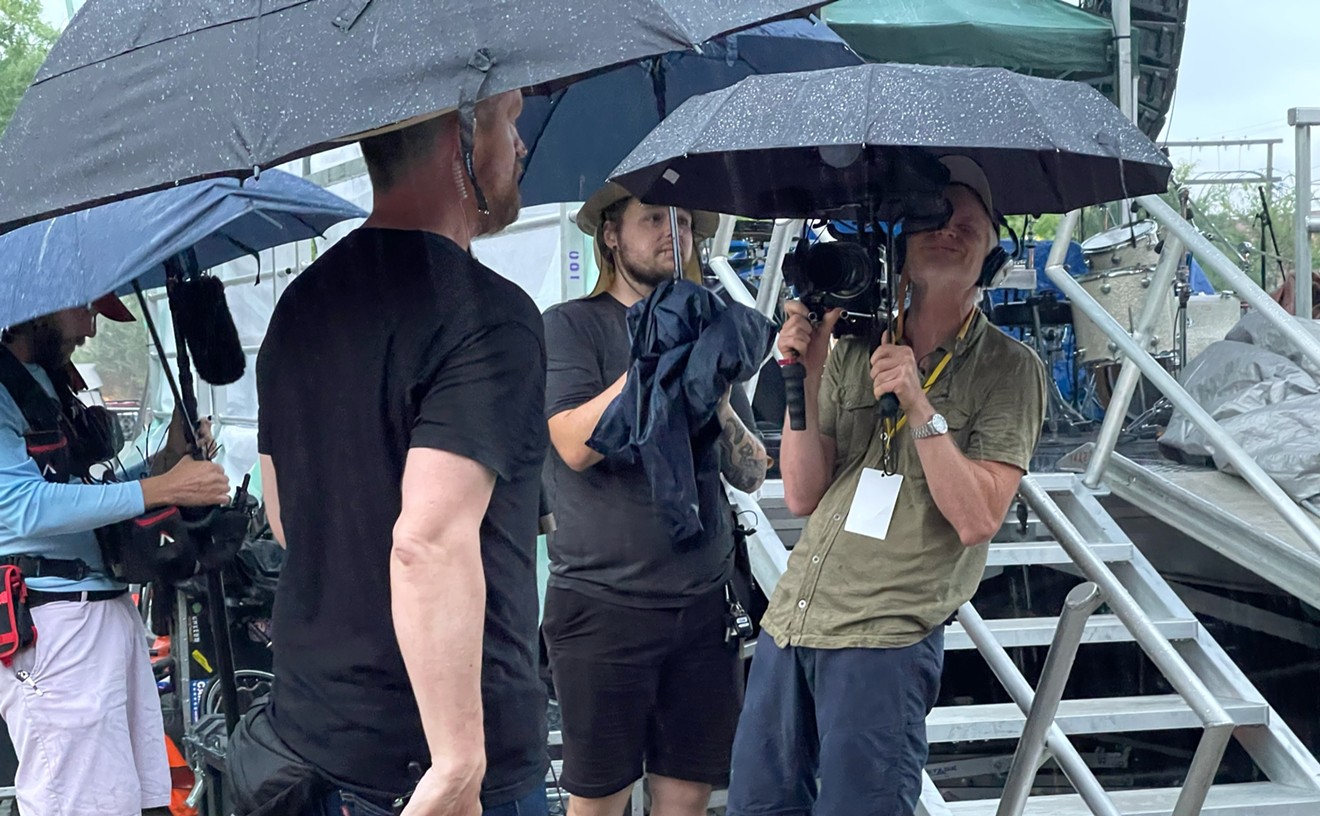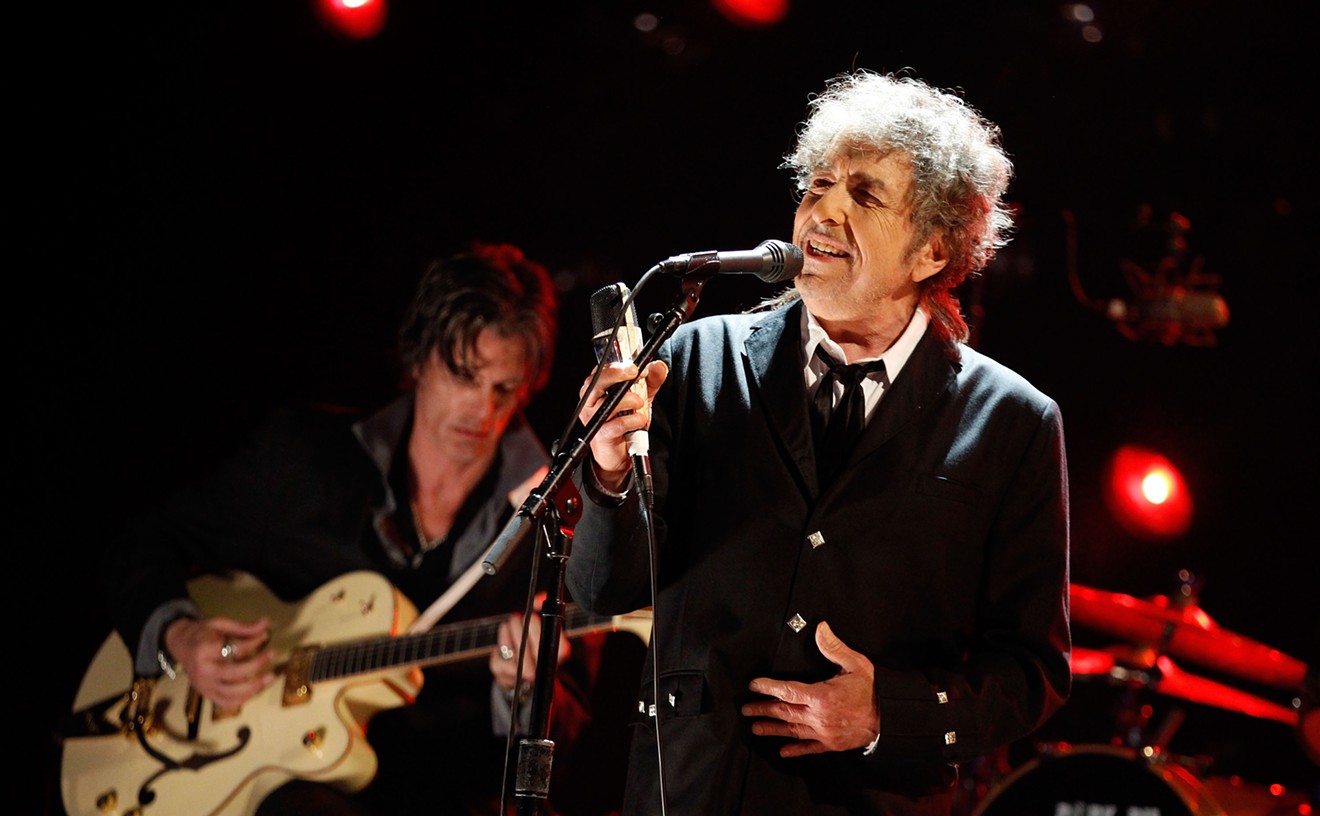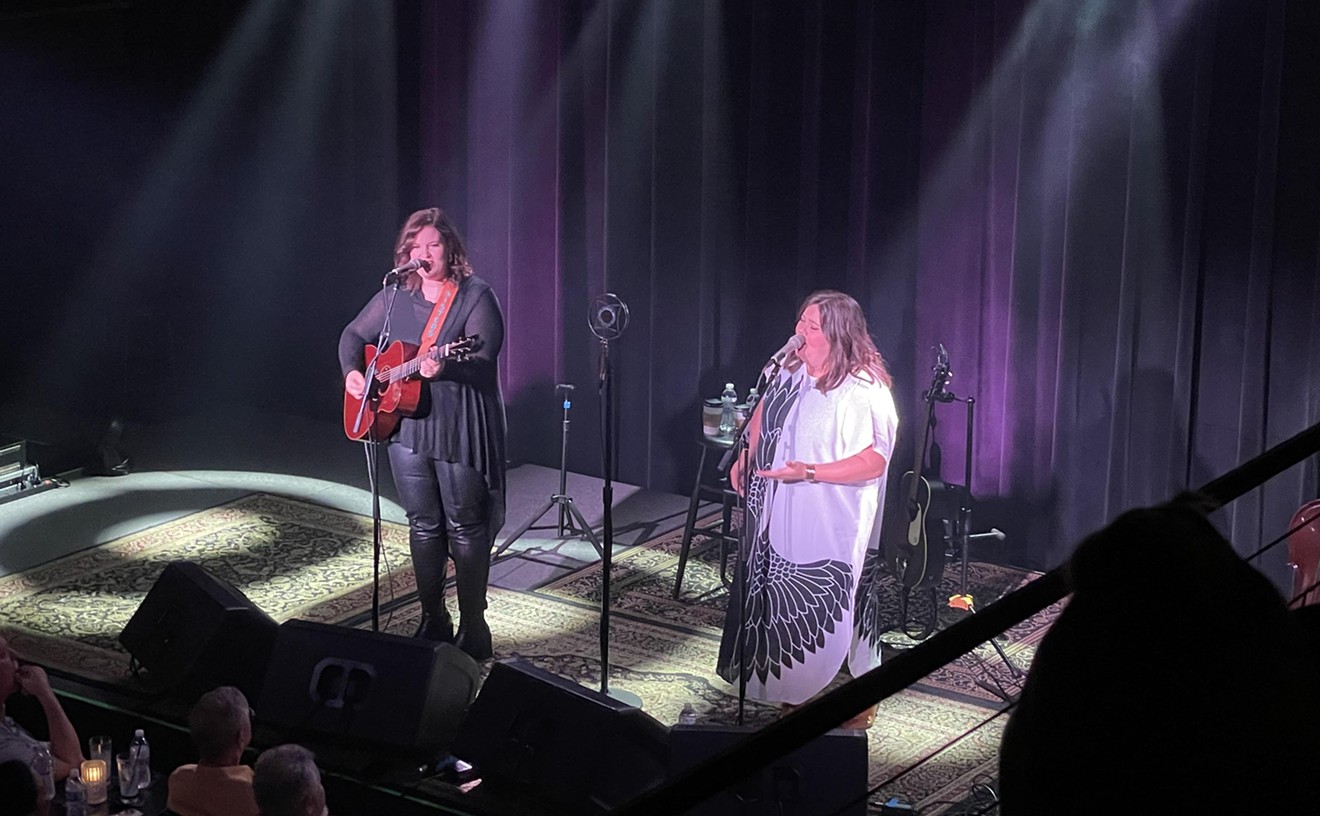Take a listen to any track on Charley Crockett’s most recent album, Lil G.L.’s Blues Bonanza, and you can hear it.
There’s a weariness in his voice on these last-call covers — it’s there in the obscure Ray Charles single “Here Am I,” seeping into the lyrics “Here am I/All alone again.”
It’s there in his take on Danny O’Keefe’s “Good Time Charley’s Got the Blues,” evident in the line “There’s not a soul I know around / Everybody’s leaving town.” It’s above and beyond the sort of pained texture inherent in the soulful, willfully undefinable music Crockett so effortlessly creates.
No, this is a shadow, a creeping darkness sitting in the spaces between breaths, haunting every syllable he sings.
And not without reason: When he was in the studio last year, assembling these records, and earlier this year, recording as-yet-unreleased music, the 34-year-old Crockett was living on what felt like borrowed time. Afflicted since birth with a heart rhythm disorder known as Wolff-Parkinson-White syndrome (or WPW), the acclaimed musician was recording what he thought at the time might be the last music he ever made.
“I felt, overall, that I could make it through, but I wasn’t sure,” Crockett says now from his home in Austin. “So, I ended up cutting an album a week before surgery because I just didn’t know. I was in a place where … I don’t know, man. I just … ”
“So, I ended up cutting an album a week before surgery because I just didn’t know. I was in a place where … I don’t know, man. I just … ” – Charley Crockett
tweet this
Here, Crockett trails off, working to articulate the monumental feeling of what it means to grapple with the idea your life may be over, through nothing more than a quirk of biology.
Our hourlong conversation is punctuated by many such pauses.
A gregarious, passionate performer, the discussion veers, at times, into and out of grim territory. Though by now, Crockett has learned how to navigate these fleeting valleys of existential dread.
“Maybe the deepest stuff I had ever written was in there, and I think I needed it," he says. "I needed to have that to go through this (surgery). I needed those recordings. That’s the best way I can put it. It gave me a deep, deep comfort to have them — not done, but I had gone in and done them.”
Now, he’s out the other side, recuperating at home after his late-January surgery, and ahead of a 2019 that will see him take his medically repaired heart and the critically acclaimed music he’s made across the country and around the world on a mammoth, multi-month tour.
Stops are planned at the Ryman Auditorium in Nashville, the Newport Folk Festival in Rhode Island and the Stagecoach Festival in California, among other high-profile appearances, but his first gig will be one much closer to home: two nights at the Kessler on April 5-6.
“That’s the big return,” Crockett says. “I’m trying to work through holding my acoustic (guitar) and standing up and singing through my songs, and that’s gotten a lot better, so I think I’ll be able to do it. We’ll just have to see.”
The stage is another place Crockett wasn’t sure he’d see again. In the weeks leading up to his eventual surgery, Crockett, who was also afflicted with a hernia causing him chronic pain, found himself, as he did during a KGSR showcase in Austin last summer, feeling breathless and dizzy.
“My hernia was bothering me before the show, and then it was time to get on stage,” Crockett says. “I just went up and played and I was in pain, and I was just playing through it because it was a full set … and it triggered my Wolff-Parkinson-White. That would happen sometimes, with trauma or intense, prolonged pain.”
Only when he began to seek medical help for his hernia did he discover how dire his arrhythmia was. His cardiothoracic surgeon sent him to a cardiologist to get him cleared for anesthesia, and Crockett discovered, in addition to the WPW, he also had bicuspid aortic valve stenosis, which would require a separate procedure to address before his hernia could be repaired.
“My heart — it was swollen, and my aorta was swollen, and my heart function was below 30 percent actually,” Crockett says. “I was in this really crazy place where I was realizing that my fatigue and blackouts and stuff that was happening was all because my heart was trying to shut down.”
“My heart — it was swollen, and my aorta was swollen, and my heart function was below 30 percent actually.” – Crockett
tweet this
It was a lot of heavy health news delivered in relatively rapid succession, and Crockett’s reaction, in hindsight, is completely understandable.
“It felt like I was being told it was happening to somebody I knew … is what it felt like at first,” he says now. “I didn’t know how to … I didn’t know how to process it. … I guess it’s like dealing with youth versus not being as young anymore. And that first time you really realize for sure that you’re not that young … the only thing that keeps you from needing health insurance is just being young.”
Crockett’s health crisis also radically altered his perspective on a reality for musicians that isn’t often talked about, or at least not talked about with the regularity and the visibility it deserves.
Health insurance can be hard to come by for working musicians, many of whom stitch together inconsistent incomes from one-off gigs and tours and the occasional record sale. When episodes like Crockett’s arise, there’s often the additional psychological stress of trying to find health insurance in a matter of weeks or days.
For Crockett, his lifeline came in the form of the Affordable Care Act, which allowed him, with his pre-existing conditions, to gain coverage and not suffer a financial catastrophe on top of his emotional and physical strains.
“It just happened to be in the middle of open enrollment for the Affordable Care Act. That’s a program I didn’t know nothing about. I’m not saying that it’s not the complete answer to America’s problems, but it was the answer to mine.”
While Crockett is grateful his situation played out as it did, he’s also now mindful of the social safety net in a way he wasn’t before last year.
“I’m not going to go out there and do volunteer work for pushing the Affordable Care Act … but it comes down to deeper issues, man,” Crockett says. “It’s just — who’s hurt the most in this society by not having access to medical [care], you know?”
That appreciation for the most vulnerable among us dovetails with the sensitivity Crockett displays in his songs, which mingle country and blues and soul and gospel — music he’s now making with multiple surgical scars on his body, including what he describes as “a huge fucking scar dividing me,” and a cow tissue valve helping push blood through his veins.
“I managed to make it to my 30s,” Crockett says. “And the reality is, I didn’t save myself. I really didn’t, because I was justifying everything that was happening, the symptoms. When I look back now, I’m like, ‘Man, you’re crazy.’”
Those songs Crockett laid down before he put himself on the operating table in January will see the light of day later this year. The title of the record? Crockett allows “it’s a work in progress,” but he’s leaning toward calling it Five More Miles.
“It's like ... life’s a struggle and you always have further to go, you know?”
Unprompted, Crockett begins to sing the final verse a cappella: “I know this life sure is hard / All I can do is pray my cause to keep saying I’m free / I just don’t know / Five more miles for me to go.”
It’s a goosebump moment, hearing the mixture of resignation and relief in Crockett’s voice.
I ask him if that title, that song and those words carry more weight than they did even four months ago.
“Man, they all do. They all do.”
Charley Crockett plays Friday, April 5 (with the Relatives) and Saturday, April 6 (with James Hand) at The Kessler Theater. Tickets are $28.

